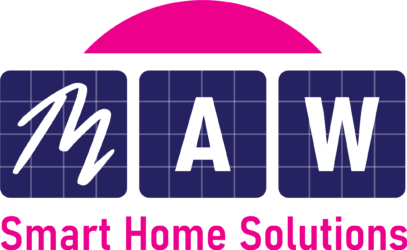
How Do I Know if My House is Good for Solar Panels?
How Do I Know if My House is Good for Solar Panels?
Thinking about installing solar panels but unsure if your home is suitable? Several factors determine whether your house is a good candidate for solar energy. Let’s break down the key considerations to help you decide.
1. Roof Orientation and Tilt
The direction and angle of your roof play a significant role in solar panel efficiency. In the northern hemisphere, south-facing roofs typically receive the most sunlight. East- and west-facing roofs can also work, though they may produce slightly less energy. Roofs with an angle between 15° and 40° are ideal, but adjustments can be made with mounting systems if needed.
2. Sun Exposure and Shading
For maximum efficiency, solar panels need direct sunlight for most of the day. Check for potential shading issues from nearby trees, chimneys, or other buildings. Even partial shading can significantly reduce the effectiveness of your system. If shading is unavoidable, options like microinverters or power optimizers can help mitigate energy loss.
3. Roof Condition and Space
Your roof should be in good condition before installing solar panels. If it’s nearing the end of its lifespan or requires repairs, it’s best to address these issues first. Additionally, consider the amount of available space. A typical residential solar panel system requires around 300-500 square feet of roof space, depending on energy needs and panel efficiency.
4. Local Climate
While solar panels work in various weather conditions, they are most effective in areas with abundant sunlight. Even if you live in a region with occasional clouds or rain, modern panels can still generate substantial energy. Check your local solar insolation levels to estimate potential energy production.
5. Energy Needs and Financial Goals
Assess your household’s energy consumption and financial goals. Solar panels can significantly reduce or eliminate your electricity bills, but the initial investment should align with your budget and long-term savings expectations. Incentives like federal tax credits or local rebates can also make solar more affordable.
Determining if your house is good for solar panels involves evaluating factors like roof orientation, sun exposure, and roof condition. If you’re unsure, Solar Experts Group offers free consultations to assess your home’s solar potential. Contact us today to take the first step toward a more sustainable and cost-effective energy solution!
Thinking about installing solar panels but unsure if your home is suitable? Several factors determine whether your house is a good candidate for solar energy. Let’s break down the key considerations to help you decide.
1. Roof Orientation and Tilt
The direction and angle of your roof play a significant role in solar panel efficiency. In the northern hemisphere, south-facing roofs typically receive the most sunlight. East- and west-facing roofs can also work, though they may produce slightly less energy. Roofs with an angle between 15° and 40° are ideal, but adjustments can be made with mounting systems if needed.
2. Sun Exposure and Shading
For maximum efficiency, solar panels need direct sunlight for most of the day. Check for potential shading issues from nearby trees, chimneys, or other buildings. Even partial shading can significantly reduce the effectiveness of your system. If shading is unavoidable, options like microinverters or power optimizers can help mitigate energy loss.
3. Roof Condition and Space
Your roof should be in good condition before installing solar panels. If it’s nearing the end of its lifespan or requires repairs, it’s best to address these issues first. Additionally, consider the amount of available space. A typical residential solar panel system requires around 300-500 square feet of roof space, depending on energy needs and panel efficiency.
4. Local Climate
While solar panels work in various weather conditions, they are most effective in areas with abundant sunlight. Even if you live in a region with occasional clouds or rain, modern panels can still generate substantial energy. Check your local solar insolation levels to estimate potential energy production.
5. Energy Needs and Financial Goals
Assess your household’s energy consumption and financial goals. Solar panels can significantly reduce or eliminate your electricity bills, but the initial investment should align with your budget and long-term savings expectations. Incentives like federal tax credits or local rebates can also make solar more affordable.
Determining if your house is good for solar panels involves evaluating factors like roof orientation, sun exposure, and roof condition. If you’re unsure, Solar Experts Group offers free consultations to assess your home’s solar potential. Contact us today to take the first step toward a more sustainable and cost-effective energy solution!